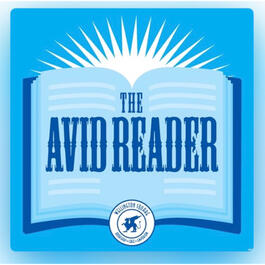
Jim Baggott - Quantum Drama: From the Bohr-Einstein Debate to the Riddle of Entanglement
The definitive account of the great Bohr-Einstein debate and its continuing legacy In 1927, Niels Bohr and Albert Einstein began a debate about the interpretation and meaning of the new quantum theory. This would become one of the most famous debates in the history of science. At stake were an understanding of the purpose, and defense of the integrity, of science. What (if any) limits should we place on our expectations for what science can tell us about physical reality? Our protagonists slowly disappeared from the vanguard of physics, as its centre of gravity shifted from a war-ravaged Continental Europe to a bold, pragmatic, post-war America. What Einstein and Bohr had considered to be matters of the utmost importance were now set aside. Their debate was regarded either as settled in Bohr's favour or as superfluous to real physics. But the debate was not resolved. The problems of interpretation and meaning persisted, at least in the minds of a few stubborn physicists, such as David Bohm and John Bell, who refused to stop asking awkward questions. The Bohr-Einstein debate was rejoined, now with a new set of protagonists, on a small scale at first. Through their efforts, the debate was revealed to be about physics after all. Their questions did indeed have answers that could be found in a laboratory. As quantum entanglement became a real physical phenomenon, whole new disciplines were established, such as quantum computing, teleportation, and cryptography. The efforts of the experimentalists were rewarded with shares in the 2022 Nobel prize in physics. As Quantum Drama reveals, science owes a large debt to those who kept the discussions going against the apathy and indifference of most physicists before definitive experimental inquiries became possible. Although experiment moved the Bohr-Einstein debate to a new level and drew many into foundational research, it has by no means removed or resolved the fundamental question. There will be no Nobel prize for an answer. That will not shut off discussion. Our Drama will continue beyond our telling of it and is unlikely to reach its final scene before science ceases or the world ends. Jim Baggott, Freelance science writer, John L. Heilbron, Professor Emeritus of History, University of California, Berkeley Jim Baggott is an award-winning science writer. Trained as a scientist in the Universities of Oxford and Stanford, and a former lecturer at the University of Reading, he has written popular books on science, philosophy, and history. His books include Quantum Reality (2020), Quantum Space (2018), Mass (2017), for which he won the 2020 Premio Cosmos prize, Higgs (2012), and The Quantum Story (2011). His books have been translated into a dozen different languages, and he has won awards both for his scientific research and his science writing. John L. Heilbron is Professor of History and Vice Chancellor Emeritus at the University of California, Berkeley, as well as an Honorary Fellow of Worcester College, Oxford. After training in physics, he studied history of science under T. S. Kuhn in the 1960s, when Kuhn was writing The Structure of Scientific Revolutions. He is the recipient of several prizes and honorary degrees from multiple universities. His books include The Incomparable Monsignor (2022), Niels Bohr: A Very Short Introduction (2020), Galileo (2012), and Love, Literature, and the Quantum Atom (with Finn Aaserund, 2013), on Bohr's 1913 trilogy of scientific papers. Buy the book from Wellington Square Bookshop - https://www.wellingtonsquarebooks.com/book/9780192846105
From "The Avid Reader Show"


Comments
Add comment Feedback